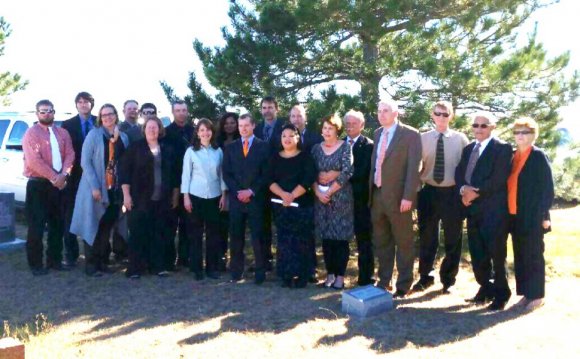
The Master of Biological and Agricultural Engineering (MBAE) is intended for working professionals who seek advanced study beyond the undergraduate level but are not interested in pursuing a career in research. This program is currently focused toward environmental engineering, but bioprocess engineering interests can be accommodated as well. Requires 30 credit hours. No thesis is required. Please visit the department web site for current admission requirements and curriculum information.
Dr. John Classen,Director of Graduate Programs, Biological and Agricultural Engineering
Phone: 919-515-6755
Delivery Method: Web-based/Online
Career prospects
(What can I do with this program of study?)
Biological and agricultural engineers specialize in areas such as environment engineering and bioprocess engineering. They develop ways to conserve soil and water and to improve the processing of agricultural products. Environmental engineers are involved in water and air pollution control, ecosystem maintenance, recycling, waste disposal, and public health issues.
Curriculum
(What will I learn?)
Students must complete at least 30 credit hours of graduate credit, at least 20 credit hours of which must at the 500 or 600 level. Up to three credit hours of Special Topics (BAE 610) or Special Problems (BAE 620) will be allowed.
All students must include a minimum of three hours of mathematics, statistics, and/or biomathematics at the 400-level or higher. Moreover, each MBAE program must show 15 hours of 400-level (or greater) engineering courses, either on the undergraduate transcript or the student's plan of work. These courses must have engineering content and must be taught from an engineering perspective.
At least 60 percent of the hours shown on the plan of work must be BAE courses. Distance education graduate BAE courses include:
- BAE 502 Instrumentation for Hydrologic Applications (3 credit hours)
- BAE 528 Biomass to Renewable Energy Processes (3)
- BAE 535 Precision Agriculture Technology (3)
- BAE 574 DRAINMOD (3)
- BAE 575 Design of Structural Stormwater Best Management Practices (3)
- BAE 576 Watershed Monitoring and Assessment (3)
- BAE 577 Introduction to the Total Maximum Daily Load Program (1)
- BAE 578 Agricultural Waste Management (3)
- BAE 580 Introduction to Land and Water Engineering (3)
- BAE 581 Open Channel Hydraulics for Natural Systems (3)
- BAE 582 Stream Restoration Structure Risk and Failure (1)
- BAE 583 Ecohydraulics and River Corridor Function (1)
- BAE 584 Introduction to Fluvial Geomorphology (3)
- BAE 585 Integrating AutoCAD Civil3D and GIS (1)
New courses are offered as BAE 590 Special Problems (1-3).
Estimated Total Credit Hours Required: 30
Admissions requirements
(Is this the program for me? How do I apply?)
Admission is granted by the Graduate School upon recommendation of the BAE Director of Graduate Programs. Applicants must hold a B.S. degree from an accredited undergraduate engineering program with an overall GPA of 2.8 and a major GPA of 3.0. Applicants not meeting the requirements for full admission may be granted provisional admission.
All applicants must submit:
- Final transcript of baccalaureate program
- Letters of reference
- A clear and concise statement of interest
Graduate School application deadlines:
- Fall semester: June 25 (US citizens); March 1 (Internationals)
- Spring semester: November 25 (US citizens); July 15 (Internationals)
- Summer I: March 25 (US citizens); December 15 (Internationals)
- Summer II: May 10 (US citizens): December 15 (Internationals)
Plan of study
(How much time will it take?)
Each student must submit a plan of work outlining the 30 credit hours which will be included in his or her program.
Normally, students in the MBAE program are self-supported. Since self-supported students may take as many as 12 credit hours of course work per semester, the MBAE can be completed in as little as three semesters (one and a half years).
Registration information
(When can I start?)
Click "Apply & Enroll" to apply for admission or register to take courses. To earn the degree, students must be admitted through NC State's Graduate School.
Prior to applying to Graduate School, a qualified person may take Engineering Online courses as a Post-Baccalaureate Studies (PBS) student. The PBS classification is designed for U.S. citizens or permanent residents who wish to undertake academic work beyond the baccalaureate degree but who are not currently admitted to a degree program. If the student is admitted to the MBAE Program, a maximum of twelve (12) hours may apply toward the 30-credit-hour requirement of the degree.
RELATED VIDEO












